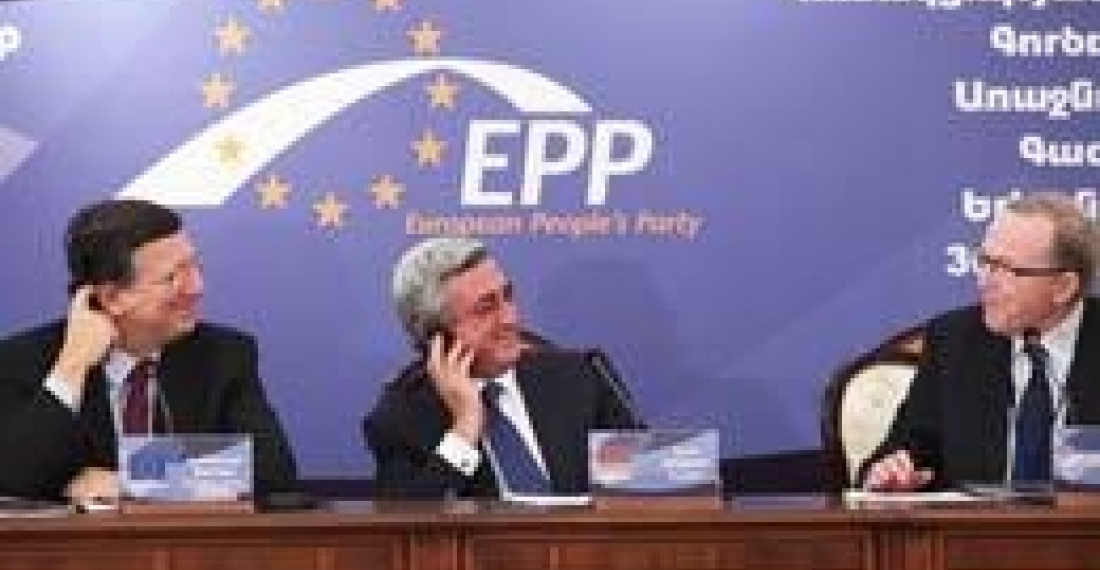Пятница, 30 ноября, АрмИнфо
Европейская Народная Партия будучи христианско- демократической, не потерпит ущемления свобод, ксенофобию, военную риторику и угрозы применения силы. Об этом заявил президент Армении Серж Саргсян после окончания II саммита стран-участниц "Восточного партнерства" ЕНП в Ереване.
Он заявил, что последняя закрытая граница Европы - армяно-турецкая - должна быть открыта немедленно и без предусловий. По его словам стремящаяся к членству в ЕС Турция продолжает осуществлять незаконную блокаду "восточного партнера" ЕС - Армению.
Он также выразил надежду, что в ближайшем будущем процесс упрощения визового режима ЕС для стран Восточного партнерства придаст новый импульс экономическому сотрудничеству, а также упростит общение граждан ЕС и Армении.
В своем выступлении Саргсян отметил важность проведения подобного мероприятия в Армении, а также заметил, что вступление трех армянских партий в ЕНП стало стимулом для установления качественно новых отношений с Европой.
В рамках проводимого в Ереване саммита лидеров стран-участниц "Восточного партнерства" Европейской народной партии была принята декларация.







